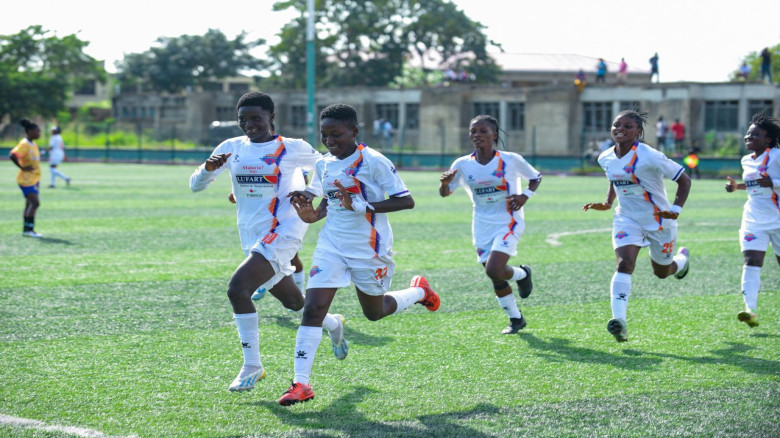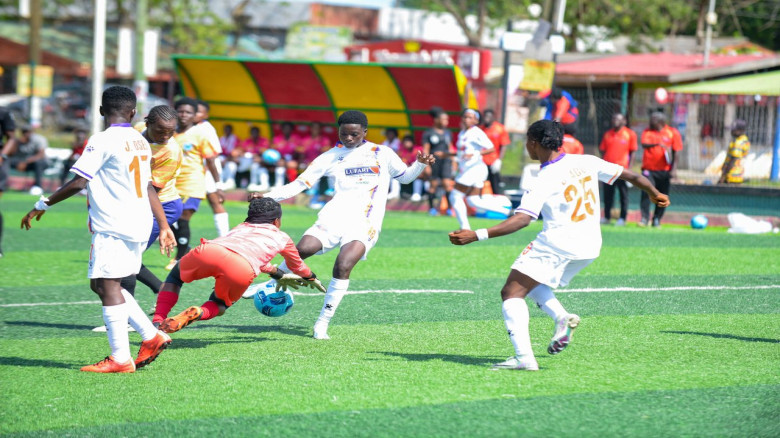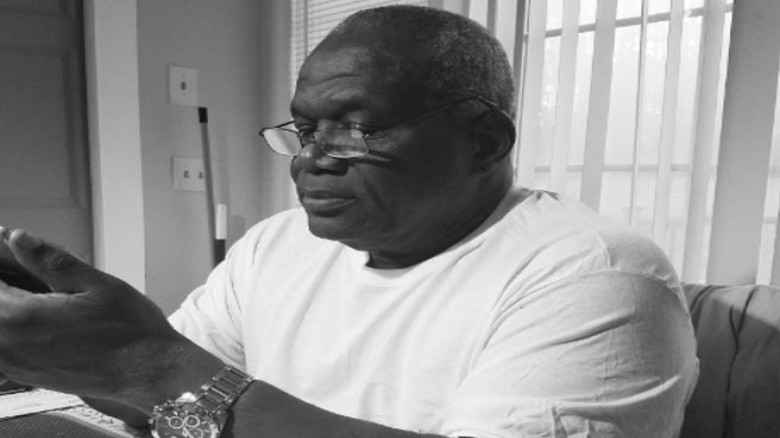$600m second tranche IMF cash: It was obvious Ghana won't get it quickly as anticipated – Lord Mensah
From all indications Ghana was not going to receive the $600million second tranche of the International Monetary Monetary Fund (IMF) cash as quickly as expected, a Professor at the University of Ghana Business School, Lord Mensah has said.
He explained that the diversity of the backgrounds of Ghana’s external creditors including China, was going to make it difficult for them to reach a common ground on the release of the funds.
Multiple media reports have indicated that the IMF has rescheduled its board meeting to consider Ghana’s second review under the Fund programme and the disbursement of the second tranche of $600 million to January 11, 2024.
Commenting on this on the Business Focus on TV3 Monday December 18, Prof Lord Mensah said “We have to understand the debt component of these external creditors, and the diversity of their backgrounds. Some of them are people’s pensions that they have invested in our economy. We need to also appreciate the geographical diversity as well, we are talking about the eastern part of the globe, China and the Western side. so effectively you are not going to get common grounds as easily as it is expected even though we are lucky to have that creditor coordinatorship that is coming as a result of the creditor committee that has been formed.
“We should understand that the way China will treat its debt is completely different from that of Europe. Most of China’s debts are highly concentrated public funds and do not purely commercialised as expected so an obviously a decision on it is not a straightforward thing. The corruption issue in China and how they treat investment, so effectively those differentials will bring about the delay.
“Also when we talk about the creditor agreement it is a counterparty kind of act and being a counterparty act, it is expected that, in Ghana, we have done our homework but the other side which are the creditors, they will also sit down and do their homework. so obvious we are not going to get to convergent points quickly as we anticipate.”
Ghanaian officials including the Governor of the Bank of Ghana (BoG), Dr Ernest Addison, had anticipated the board of funds to meet before the end of the year to consider the release of the second tranche of the $ 3 billion cash.
This followed the successful review of the $600 million first tranche.
Dr Addison said this while answering questions at the 115th Monetary Policy Committee (MPC) press conference in Accra on Monday, November 27.
He said “We expect the IMF board meeting to take place before the end of the year, which should also trigger another disbursement of foreign exchange.”
Earlier, the Minister of Finance Ken Ofori-Atta indicated that Ghana met all six of the Quantitative Performance Criteria (QPCs) during the first review.
Presenting the 2024 budget statement to Parliament on Wednesday, November 15, Mr Ofori-Atta explained that the IMF-supported Post COVID-19 Programme for Economic Growth (PC-PEG) is assessed semi-annually by the IMF through an IMF staff review mission followed by final approval by the IMF Executive Board.
Disbursements under the Programme are tied to the successful completion of each review, he added.
The reviews assess Ghana’s progress towards meeting the Quantitative Performance Criteria (QPCs), Indicative Targets (ITs), and Structural Benchmarks (SBs).
Ghana’s first review commenced with the IMF fielding a mission to undertake a staff assessment from 25th September to 6th October 2023.
This review covered the assessment of:
i. six (6) Quantitative Performance Criteria (PCs);
ii. one (1) Monetary Policy Consultation Clause (MPCC) for inflation;
iii. three (3) Indicative Targets (ITs); and
iv. nine (7) Structural Reform Benchmarks (SBs) that were due at the end of September 2023.
“I am glad to inform this august house that based on the IMF’s own assessment (at the staff level) after the first review, Ghana met All six (6) of the Quantitative Performance Criteria (QPCs). The QPCs are a floor on net international reserves, ceiling on primary balance on commitment basis, ceiling on contracting non-concessional loan/guarantee, zero collateralized borrowing, and no accumulation of external debt service arrears.
“Two (2) out of the 3 Indicative Targets. The two ITs met are a floor on social spending and a floor on non-oil public revenue. The IT on zero net accumulation of payables was extended largely due to the ongoing negotiations with Energy Sector IPP on legacy debt; .
“Six (6) out of the seven (7) Structural Benchmarks due end-September 2023. The six SBs met are (a) preparation and publication of arrears clearance and prevention strategy, (b) preparation and publication of financial sector strengthening strategy, (c) preparation and publication a strategy for review of earmarked (statutory) funds, (d) preparation and
publication of a medium-term revenue strategy, (e) a strategy for indexation of LEAP benefits and (f) BoG to approve capital building buffer plans for banks. The seventh SB on the preparation and publication of an updated Energy Sector Recovery Plan which was expected to be completed at the end of June 2023 was strategically completed and
published on the MoF website in October 2023.
“Mr. Speaker, the outstanding performance of Ghana during the first (1st) review paved the way for Ghana to reach a Staff Level Agreement (SLA) with IMF on the 6th October 2023, a record five (5) months after the Programme was approved in May 2023.”
3 news.com











Leave A Comment